Easy way to get fat: Consume excess calories consistently by eating unhealthy, high-calorie foods. In today’s fast-paced world, where convenience often takes precedence over health, maintaining a healthy weight can be a challenge for many.
Some individuals may actually aspire to gain weight, whether due to under-nutrition or personal preference. However, simply scarfing down copious amounts of junk food is not a sustainable or healthy approach to achieving weight gain. It is essential to focus on consuming a surplus of calories in a controlled manner, by including nutritious, high-calorie foods in your diet.
We will explore some practical strategies to help you gain weight effectively while prioritizing your well-being. So, if you’re looking to add some pounds to your frame, keep reading to discover the easy way to get fat.
Understanding Weight Gain

Factors Affecting Weight Gain
When it comes to weight gain, several factors play a role in determining whether a person will pack on the pounds. These factors can vary from person to person, making weight gain a complex issue that cannot simply be attributed to a single cause. However, by understanding the common factors affecting weight gain, you can better equip yourself to manage your own weight effectively.
- Diet: The food and drink we consume play a significant role in weight gain. Consuming high-calorie, unhealthy foods can contribute to excess weight gain, while a balanced diet that includes nutrient-rich foods can promote a healthy weight.
- Physical activity: Insufficient physical activity or a sedentary lifestyle can contribute to weight gain. Regular exercise helps burn calories, which in turn can help manage weight.
- Stress: When stressed, some people may turn to food as a source of comfort, leading to emotional eating and weight gain. Stress can also affect hormone levels, which can impact metabolism and fat storage.
- Sleep: Lack of sleep or poor sleep quality can disrupt the balance of hormones related to appetite, leading to increased food cravings and potential weight gain.
- Environment: Our environment can influence our weight. Factors such as easy access to unhealthy food options, larger portion sizes, and sedentary lifestyles promoted by modern society can all contribute to weight gain.
Role Of Genetics In Weight Gain
Genetics can also play a role in weight gain. Research has shown that certain genes can influence how our bodies store and distribute fat, as well as how efficiently we process and metabolize food. While genetics can contribute to an individual’s predisposition to gain weight, they do not necessarily determine a person’s fate. Lifestyle choices, such as diet and exercise, can still have a significant impact on weight, even in individuals with a genetic predisposition to gain weight.
Impact Of Metabolism On Weight Gain
Metabolism, the process by which our bodies convert food into energy, also plays a crucial role in weight gain. Some individuals may have a faster metabolism, allowing them to burn calories more quickly, while others may have a slower metabolism, making it easier for them to gain weight. However, it’s important to note that metabolism can be influenced by various factors, including age, body composition, and physical activity level. By making healthy lifestyle choices, such as consuming a balanced diet and engaging in regular exercise, one can positively impact their metabolism and manage weight effectively.
In conclusion, understanding the factors affecting weight gain, the role of genetics, and the impact of metabolism can provide valuable insights for individuals looking to manage their weight. By making informed choices and adopting healthy habits, you can take control of your weight and improve your overall well-being.
Some Easy Ways to Lose Weight: Kickstart Your Weight Loss Journey Today
Importance Of Caloric Surplus
When it comes to gaining weight, the importance of caloric surplus cannot be emphasized enough. A caloric surplus occurs when you consume more calories than your body needs to maintain its current weight. This surplus provides your body with the extra energy it needs to build muscle, increase body fat, and ultimately achieve weight gain.
What Is Caloric Surplus?
A caloric surplus, also known as positive energy balance, is the state where you consume more calories than your body burns. In other words, you are in an excess of energy intake, resulting in weight gain. This surplus can come from consuming more healthy, nutrient-dense foods or including higher-calorie options in your diet.
How A Caloric Surplus Leads To Weight Gain
When you consistently consume more calories than your body needs, it stores the excess energy as body fat. This excess energy is used to build and repair muscles, support increased metabolic functions, and ensure overall bodily functions are maintained optimally. Consequently, the surplus in calories contributes to weight gain.
Moreover, a caloric surplus plays a crucial role in muscle growth. When combined with resistance training, the additional calories provide the necessary fuel for muscle protein synthesis. This process involves the creation of new muscle fibers, resulting in muscle hypertrophy and strength gain. So, if your goal is to achieve a more muscular physique, incorporating a caloric surplus is essential.
Calculating The Appropriate Caloric Surplus For Weight Gain
To ensure effective weight gain, it’s crucial to calculate the appropriate caloric surplus. The level of surplus needed varies from person to person, depending on individual factors such as age, gender, weight, activity level, and metabolism.
One way to estimate your caloric surplus is by determining your Total Daily Energy Expenditure (TDEE) – the number of calories your body requires to maintain its current weight. Once you have your TDEE, you can add a surplus of around 250-500 calories per day to gradually promote weight gain.
It is important to note that while a caloric surplus is necessary for weight gain, it should be done in a controlled and gradual manner. Rapid weight gain can lead to excessive fat accumulation and potential health risks. Therefore, ensuring a moderate and sustainable surplus is essential for healthy weight gain.
Macronutrient Ratios For Weight Gain
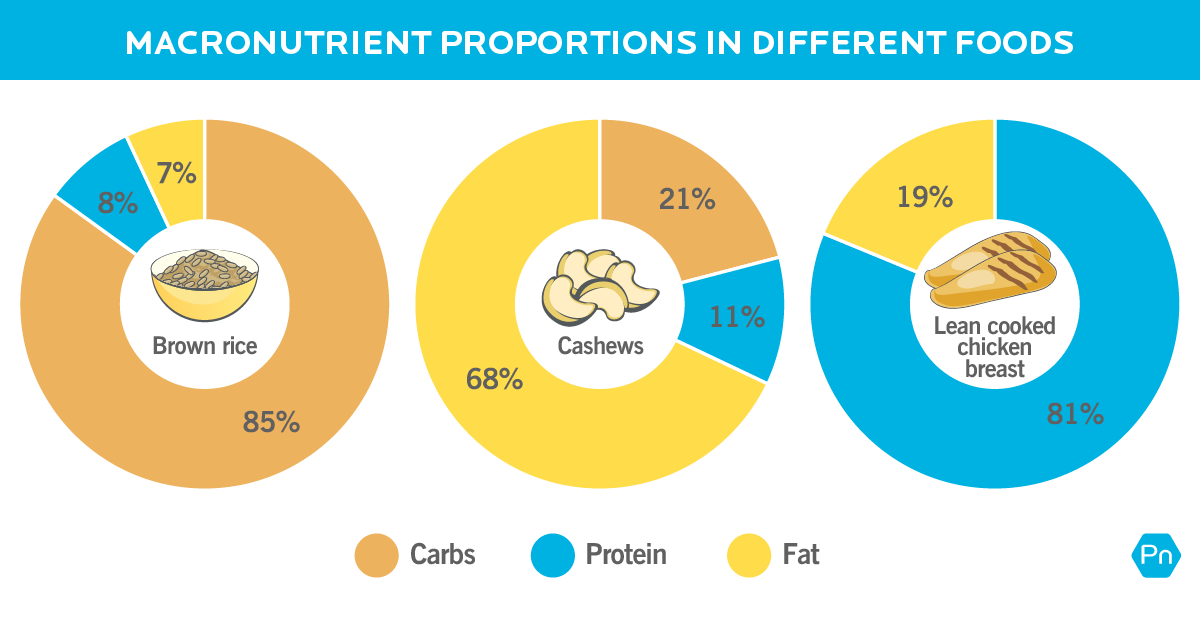
When it comes to gaining weight, it’s not just about eating more food, but also about understanding the right macronutrient ratios. Macronutrients, specifically proteins, carbohydrates, and fats, play a crucial role in the body’s growth and development. By balancing these macronutrients properly, you can achieve effective weight gain without compromising your health. In this article, we will dive into the depths of macronutrient ratios for weight gain and learn how to choose the right foods for each macronutrient.
Understanding Macronutrients: Proteins, Carbohydrates, And Fats
Macronutrients form the foundation of our diet, providing the essential components our body needs to function optimally. Understanding the role of each macronutrient can help us make informed dietary choices:
- Proteins: Proteins are the building blocks of our body. They are essential for repairing and building tissues, including muscles. A diet rich in proteins aids in muscle growth and repair, contributing to weight gain. Sources of protein include lean meats, poultry, fish, eggs, dairy products, legumes, and plant-based proteins such as tofu and tempeh.
- Carbohydrates: Carbohydrates are the body’s primary source of energy. They are essential for fueling the muscles and providing the energy required for physical activities. Complex carbohydrates like whole grains, fruits, vegetables, and legumes provide sustained energy and are ideal for weight gain. Avoiding refined sugars and opting for fiber-rich carbohydrates is crucial for maintaining a healthy diet.
- Fats: Unlike the common misconception, fats are necessary for our body’s well-being. They provide insulation, protect our organs, and assist in hormone production. While consuming excessive unhealthy fats can lead to weight gain, consuming healthy fats is vital for a balanced diet. Sources of healthy fats include avocados, nuts, seeds, olive oil, and fatty fish like salmon.
Ideal Macronutrient Ratios For Weight Gain
Choosing the right macronutrient ratios promotes healthy weight gain. While individual needs may vary, the following guidelines provide a general roadmap:
| Macronutrient | Ideal Ratio |
|---|---|
| Proteins | 25-35% of total calorie intake |
| Carbohydrates | 45-55% of total calorie intake |
| Fats | 20-30% of total calorie intake |
These ratios are a solid starting point, but individual adjustments may be necessary based on factors such as metabolism, activity levels, and specific health needs. Consulting with a nutritionist or dietitian can help fine-tune the ratios to suit your unique circumstances.
Choosing The Right Foods For Each Macronutrient
Now that we understand the importance of macronutrient ratios, it’s essential to choose the right foods for each macronutrient. Here are some food recommendations:
- Proteins: Opt for lean sources such as skinless chicken, turkey, lean cuts of beef, fish, low-fat dairy products, and plant-based proteins like lentils and quinoa. Incorporate protein-rich snacks like Greek yogurt, cottage cheese, and protein shakes into your diet.
- Carbohydrates: Include complex carbohydrates like whole-grain bread, oats, brown rice, quinoa, sweet potatoes, and fruits. Fiber-rich vegetables like broccoli, spinach, and kale are also excellent additions.
- Fats: Emphasize healthy fats from sources like avocados, nuts, seeds, and olive oil. Fatty fish such as salmon and trout are rich in omega-3 fatty acids, which offer numerous health benefits.
By incorporating these recommended foods into your diet and maintaining the ideal macronutrient ratios, you can achieve healthy weight gain while nourishing your body with the essential nutrients it needs.
Creating A Weight Gain Meal Plan
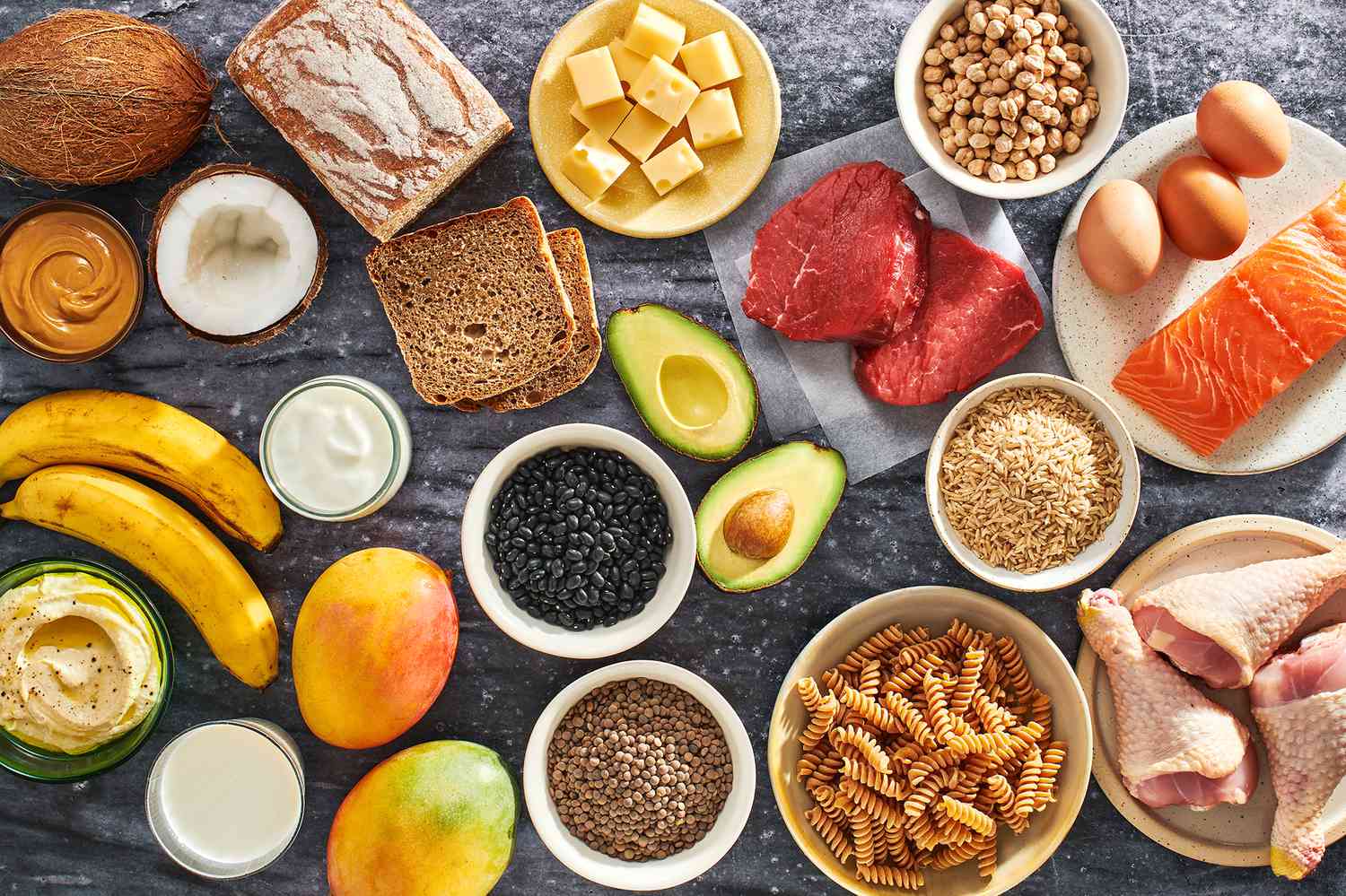
Are you struggling to gain weight? Creating a weight gain meal plan can make all the difference. By carefully selecting calorie-dense foods and designing a balanced meal plan, you can achieve your weight gain goals. In this article, we will walk you through the process of creating a weight gain meal plan step by step. So let’s get started!
Setting Calorie And Macronutrient Goals
To effectively gain weight, it is important to set specific calorie and macronutrient goals. This will ensure you are consuming enough calories and nutrients to support your weight gain. Here’s how you can do it:
- Determine your daily calorie needs using a calorie calculator. This will give you a baseline number of calories you need to consume to maintain your current weight.
- To gain weight, you should aim to consume 300 – 500 calories above your maintenance level each day. This surplus will provide your body with enough energy to build muscle and increase your weight.
- Next, calculate your macronutrient ratios. A balanced meal plan for weight gain typically includes a higher proportion of carbohydrates and protein. Aim for a split of around 40% carbohydrates, 30% protein, and 30% fat. Adjust these ratios based on your personal preferences and dietary restrictions.
Designing A Balanced Meal Plan For Weight Gain
Now that you have established your calorie and macronutrient goals, it’s time to design a balanced meal plan. Here’s how:
- Divide your total daily calories into 4-6 meals throughout the day. This will ensure a steady supply of nutrients and energy to support weight gain.
- Include a variety of food groups in each meal to ensure you’re getting a wide range of nutrients. Your meal should consist of a protein source, complex carbohydrates, healthy fats, and vegetables.
- Examples of protein sources include lean meats, poultry, fish, eggs, dairy products, and plant-based protein sources like tofu and legumes.
- For carbohydrates, opt for whole grains, fruits, and starchy vegetables like potatoes and sweet potatoes. These provide sustained energy and essential nutrients.
- Include healthy fats in your meals such as avocados, nuts, seeds, and olive oil. These are calorie-dense and help provide essential fatty acids.
- Don’t forget to incorporate a variety of vegetables to ensure you get a wide range of vitamins and minerals. Include leafy greens, cruciferous vegetables, and colorful options like bell peppers and carrots.
Incorporating Healthy And Calorie-dense Foods In The Plan
When designing your weight gain meal plan, it’s essential to include healthy and calorie-dense foods. Here are some examples:
| Food Group | Examples |
|---|---|
| Protein | Chicken breast, salmon, Greek yogurt, lentils, quinoa |
| Carbohydrates | Whole wheat bread, brown rice, oats, sweet potatoes, bananas |
| Fats | Avocados, almonds, walnuts, olive oil, peanut butter |
| Vegetables | Broccoli, spinach, bell peppers, carrots, kale |
Remember, incorporating a mix of nutrient-dense foods from each food group will provide you with the essential nutrients you need for healthy weight gain. Be sure to adjust portion sizes and food choices to meet your calorie and macronutrient goals.
A List of 50 Super Healthy Foods: Transform Your Health with These Power-packed Foods!
Effective Weight Gain Exercises

Discover effective weight gain exercises that can help you add pounds quickly and easily. Say goodbye to being underweight and hello to a healthier, fuller you.
Importance Of Resistance Training For Weight Gain
A key component of any weight gain journey is resistance training. Engaging in resistance exercises helps build muscle, leading to an increase in overall body massage. Contrary to popular belief, weight gain does not solely depend on consuming excess calories; it also relies on stimulating muscle growth.
Resistance training involves working against a force, such as weights, to create muscle tension. This tension triggers micro-traumas in the muscle fibers, which then repair and grow stronger. By consistently challenging the muscles through resistance exercises, individuals can gradually increase their muscle mass and overall weight.
Different Types Of Exercises For Muscle Growth
To promote muscle growth and weight gain, a combination of different exercise types should be incorporated into your workout routine. Here are some effective exercises to consider:
1. Compound Exercises:
Compound exercises target multiple muscle groups simultaneously, maximizing muscle stimulation. They include exercises such as squats, deadlifts, bench presses, and overhead presses.
2. Isolation Exercises:
Isolation exercises focus on specific muscle groups, allowing for targeted muscle growth. Examples of isolation exercises are bicep curls, tricep extensions, and calf raises.
3. Bodyweight Exercises:
Bodyweight exercises are ideal for beginners or those without access to weights. These exercises, including push-ups, pull-ups, and lunges, utilize your own body weight as resistance.
Designing A Workout Plan For Weight Gain
Creating a well-rounded workout plan is crucial when aiming for weight gain. Here’s a step-by-step guide to designing a workout plan that prioritizes muscle growth:
- Assess Your Current Fitness Level: Determine your baseline fitness level to establish a starting point for your workout plan.
- Set Realistic Goals: Define specific and achievable goals for your weight gain journey.
- Choose the Right Exercises: Incorporate a variety of compound, isolation, and bodyweight exercises targeting different muscle groups.
- Determine Sets and Reps: Consult with a fitness professional to determine the appropriate number of sets and repetitions for each exercise based on your goals and fitness level.
- Schedule Your Workouts: Plan specific days and times for your workouts to ensure consistency and accountability.
- Progressive Overload: Gradually increase the intensity of your workouts by adding more weight, increasing repetitions, or decreasing rest time between sets.
- Rest and Recovery: Allow adequate time for rest and recovery to optimize muscle growth and prevent overtraining.
Remember, consistency and proper form are key when performing weight gain exercises. Stick to your workout plan, fuel your body with a balanced diet, and give yourself ample time to see results.
Powerful Strategies for Stronger Bones
Supplementation For Rapid Weight Gain|Supplementation For Rapid Weight Gain

If you are looking to quickly gain weight and build muscle, supplementation can play a crucial role in achieving your goals. While proper nutrition and exercise are important, certain supplements can provide an extra boost to help you bulk up faster. In this article, we will discuss the understanding of supplementation for weight gain, the essential supplements for muscle growth, and the safety precautions and guidelines for their use.
Understanding The Role Of Supplements In Weight Gain
Supplements are designed to supplement an individual’s diet and provide the necessary nutrients that may be lacking for specific fitness goals, such as weight gain. These supplements are formulated with a high concentration of key ingredients that can enhance muscle growth, increase caloric intake, and improve overall performance. However, it’s important to note that supplements should never replace a well-balanced diet but rather complement it.
Essential Supplements For Muscle Growth And Weight Gain
When it comes to weight gain and muscle growth, there are several essential supplements that can greatly accelerate your progress. These supplements include:
- Whey Protein: Whey protein is a fast-absorbing protein source that provides the body with an abundant supply of amino acids necessary for muscle repair and growth. It can be consumed in the form of shakes or added to your meals.
- Creatine: Creatine is a naturally occurring compound in the body that helps produce energy for muscle contractions. By supplementing with creatine, you can increase your strength and endurance, leading to more intense workouts and faster muscle gains.
- Weight Gainers: Weight gainer supplements are designed to provide a high-calorie intake, making it easier to reach your daily caloric surplus. These supplements often contain a combination of carbohydrates, proteins, and fats to promote weight gain and muscle growth.
- BCAAs: Branched-Chain Amino Acids (BCAAs) are essential amino acids that stimulate muscle protein synthesis and reduce muscle breakdown. Taking BCAAs during your workouts can enhance muscle recovery and promote overall muscle growth.
Safety Precautions And Guidelines For Supplement Use
While supplements can be highly effective for weight gain, it’s important to prioritize safety and use them responsibly. Here are some guidelines to follow:
- Consult a healthcare professional: Before starting any new supplement, it is always wise to consult with a healthcare professional or registered dietitian to ensure it is safe for you and to determine the appropriate dosage.
- Read and follow instructions: Each supplement will have specific instructions on its label or packaging. It is crucial to read and follow these instructions carefully to maximize the benefits and minimize any potential side effects.
- Avoid overconsumption: While supplements can be beneficial, taking excessive amounts can lead to negative health effects. Stick to the recommended dosage and avoid doubling up on supplements unless advised by a healthcare professional.
- Quality matters: Choose reputable brands and look for third-party testing certifications to ensure the supplements are of high quality and free from contaminants.
Incorporating supplements into your diet and fitness routine can be an effective way to expedite weight gain and muscle growth. However, it’s important to remember that supplements are not magic pills and should be used in conjunction with a well-balanced diet and regular exercise for optimal results. By understanding the role of supplements, identifying the essential ones for weight gain, and following safety precautions, you can embark on your journey towards achieving your weight gain goals.
7 Energizing Power Foods to Start Your Day | Healthy Breakfast
Overcoming Challenges And Plateaus

When it comes to gaining weight, the journey can be filled with challenges and plateaus that can often test our patience and perseverance. However, with the right strategies and mindset, you can overcome these hurdles and continue on your path to a healthier and fuller physique. In this section, we will discuss some common challenges and plateaus faced during weight gain and provide effective solutions to help you stay motivated and achieve your goals.
Dealing With Appetite Issues During Weight Gain
One of the major challenges during weight gain is dealing with appetite issues. While some individuals might have a naturally strong appetite, others might struggle with a lack of appetite, making it difficult to consume the necessary calories for weight gain. If you fall into the latter category, there are a few strategies you can employ to increase your calorie intake:
- Eat more frequently: Instead of forcing yourself to eat large meals, try breaking your meals into smaller, more manageable portions throughout the day. This can help increase your overall calorie consumption without feeling overwhelmed.
- Focus on nutrient-dense foods: Choose foods that are high in calories and packed with nutrients. Include healthy fats, such as avocados and nuts, in your meals to boost your calorie intake without compromising nutritional value.
- Drink calorie-rich beverages: Sip on smoothies, protein shakes, or whole milk throughout the day to add extra calories to your diet. These beverages are easy to consume and can help you meet your daily calorie goals.
Strategies To Overcome Weight Gain Plateaus
Plateaus are a common occurrence during weight gain and can be frustrating. However, with persistence and a few effective strategies, you can push past these plateaus and continue making progress:
- Adjust your calorie intake: As your body adapts to your new calorie intake, it may become less responsive to weight gain. In this case, gradually increase your calorie intake to kickstart your progress once again.
- Diversify your exercise routine: Incorporating different types of exercises into your routine can help challenge your muscles and prevent plateauing. Trying new activities or increasing the intensity and frequency of your workouts can make a significant difference.
- Monitor your progress: Keep track of your weight gain and body measurements to identify any patterns or plateaus. Having a clear understanding of your progress can help you make informed adjustments to your diet and exercise routine.
Managing Weight Gain In A Healthy And Sustainable Way
While it’s important to focus on gaining weight, it’s equally crucial to do it in a healthy and sustainable manner. Here are some tips to ensure your weight gain journey is both nourishing and sustainable:
- Opt for whole foods: Instead of relying on processed or junk foods to meet your calorie goals, prioritize whole, unprocessed foods. These foods provide essential nutrients while promoting overall health and well-being.
- Include all macronutrients: Make sure your diet includes a balance of carbohydrates, proteins, and fats. Each macronutrient plays a vital role in weight gain and overall health, so it’s important not to neglect any of them.
- Seek professional guidance: If you’re struggling with weight gain or facing persistent challenges, consider consulting a registered dietitian or a healthcare professional. They can offer personalized advice and ensure you’re on the right track to meet your goals.
Boost Your Fitness with These Power Steps
Tracking Progress And Adjusting

Tracking progress and adjusting your approach is essential when it comes to finding an easy way to get fat. By keeping a close eye on your progress and making necessary adjustments, you can optimize your weight gain journey for better results.
Stay focused, monitor your progress, and adapt as needed to achieve your desired outcome.
Importance Of Tracking Weight And Body Measurements
Tracking your weight and body measurements is crucial when it comes to monitoring your progress on your journey to gaining weight. By keeping a detailed record of your weight, body fat percentage, and body measurements, you can objectively assess your progress and make any necessary adjustments to your diet and exercise routine.
Your weight is a key indicator of your progress in gaining weight. By monitoring your weight regularly, you can identify whether you are gaining or maintaining weight effectively. Tracking your weight allows you to spot any fluctuations or plateaus so that you can take appropriate action to adjust your caloric intake or exercise routine.
While weight is a valuable metric, it may not provide a comprehensive picture of your progress. Body measurements, such as waist circumference, hips, thighs, and biceps, can help you understand how your body composition is changing. As you gain weight, you may notice changes in body measurements, indicating that you are building muscle and achieving a healthier physique.
Analyzing Progress And Making Necessary Adjustments
Once you have tracked your weight and body measurements, it is essential to analyze your progress regularly. By comparing your current measurements to your baseline, you can determine if you are making the desired progress or if any adjustments need to be made.
Compare your current weight to your starting weight. Ideally, you should see a gradual increase over time. If your weight remains stagnant or increases too rapidly, it may be an indication that you need to adjust your diet or exercise routine.
Similarly, analyze your body measurements to identify changes in specific areas. Are your muscles becoming more defined? Are you noticing any changes in your waist or hip measurements? By paying attention to these details, you can determine which areas you need to focus on and make necessary adjustments to your workout regimen or nutrition plan.
Seeking Professional Guidance For Personalized Advice
While tracking your progress and making adjustments is crucial, seeking professional guidance can provide you with personalized advice to ensure you are on the right track. A registered dietitian or nutritionist can analyze your progress, review your dietary habits, and recommend specific adjustments based on your individual goals and needs.
A professional can provide expert guidance and develop a customized plan tailored to your body’s unique requirements. They can help you understand any plateaus or challenges you may be facing, offer suggestions for specific dietary changes, and provide ongoing support to keep you motivated and accountable on your weight gain journey.
Remember, tracking progress and adjusting your approach are key elements in achieving your weight gain goals. By diligently monitoring your weight and body measurements, analyzing your progress, and seeking professional guidance when needed, you can stay on track and make the necessary adjustments to ensure your success.
A List of 50 Super Healthy Foods: Transform Your Health with These Power-packed Foods!
Healthy Weight Gain Vs. Unhealthy Weight Gain
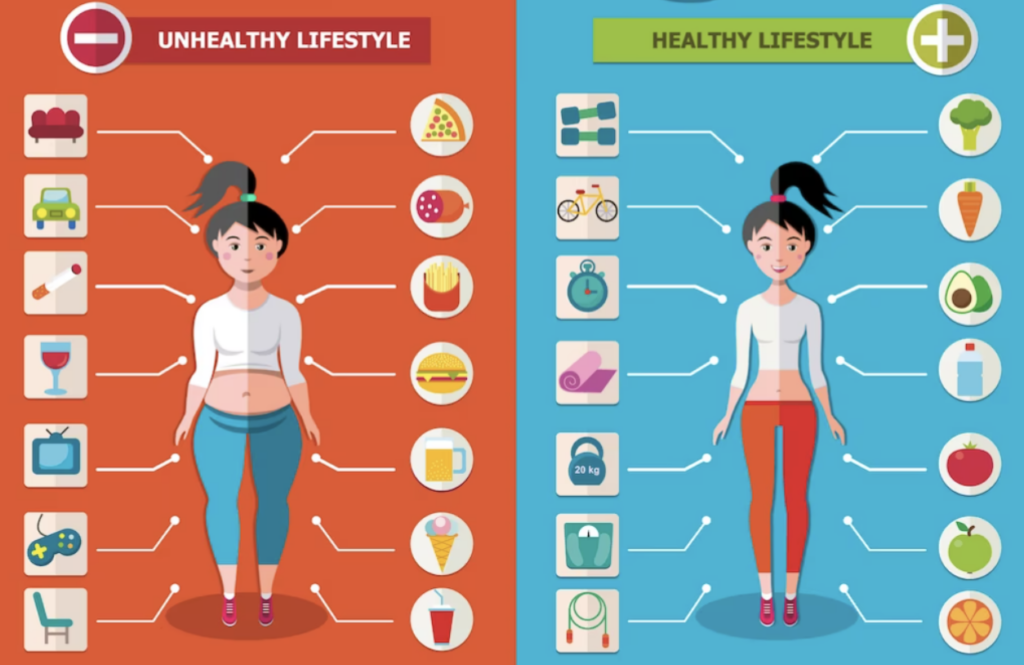
Gain weight in a healthy way by focusing on nutritious foods and regular exercise. Avoid unhealthy weight gain by avoiding processed foods and sedentary lifestyle.
Differentiating Between Healthy And Unhealthy Weight Gain
When it comes to gaining weight, it is important to understand that there is a distinction between healthy and unhealthy weight gain. Healthy weight gain involves increasing your body mass in a gradual and controlled manner, which ensures that the weight gained is primarily muscle rather than fat.
Unhealthy weight gain, on the other hand, refers to the rapid accumulation of excess fat in the body. This type of weight gain can be detrimental to your health and may lead to various complications such as cardiovascular problems, diabetes, and metabolic disorders.
Recognizing Red Flags For Excessive Weight Gain
Recognizing the red flags for excessive weight gain is crucial in order to maintain a healthy balance. If your weight gain is accompanied by the following signs, it is important to consult a healthcare professional:
- Rapid and uncontrolled increase in body weight
- Difficulty in performing daily activities due to excessive weight gain
- Development of unhealthy eating habits, such as overeating or binge eating
- Feeling constantly fatigued or lacking energy
- Noticeable change in body shape, such as a significant increase in abdominal fat
Maintaining Overall Health During The Weight Gain Process
When it comes to gaining weight in a healthy manner, it is essential to prioritize your overall well-being. Here are some tips to ensure you maintain good health during the weight gain process:
- Follow a balanced diet that includes a variety of nutrient-dense foods such as lean proteins, whole grains, fruits, and vegetables.
- Incorporate regular exercise into your routine, focusing on strength training exercises to promote muscle growth.
- Avoid excessive consumption of processed foods, sugary beverages, and unhealthy snacks, as they can contribute to unhealthy weight gain.
- Stay hydrated by drinking an adequate amount of water throughout the day.
- Monitor your progress and make adjustments as needed, seeking guidance from a healthcare professional or nutritionist.
By following these guidelines, you can ensure that your weight gain journey is not only effective but also beneficial for your overall health. Remember, the goal is to achieve a healthy weight gain that promotes muscle growth and enhances your well-being.
Doctor’s Advice on Winter Health: Stay Strong and Healthy!
Frequently Asked Questions For Easy Way To Get Fat
How To Get Fat Quickly?
To gain weight quickly, focus on consuming more calories than you burn. Increase your daily calorie intake by eating nutrient-dense foods, such as nuts, avocados, and whole grains. Include protein-rich foods like lean meats and legumes, along with regular strength training exercises.
Avoid junk food and prioritize a balanced diet.
How To Gain 10 Pounds In A Week?
To gain 10 pounds in a week, focus on increasing your caloric intake by consuming more high-calorie foods and beverages. Eat larger portions and snack frequently. Choose nutrient-dense foods like avocados, nuts, and nut butters. Incorporate protein-rich foods like meat, poultry, and fish into your meals.
Stay hydrated and limit excessive physical activity.
What Foods Are Easy To Eat To Get Fat?
Fatty foods like fast food, fried items, sugary snacks, and processed foods can contribute to weight gain.
How Can I Eat 3,000 Calories A Day?
To eat 3,000 calories a day, focus on consuming calorie-dense foods like nuts, avocados, and nut butter. Additionally, include high-calorie drinks like smoothies and shakes. Divide your meals into smaller portions and have snacks throughout the day. Tracking your calorie intake can also help meet your goal.
What Are Some Easy Ways To Gain Weight Quickly?
To gain weight quickly, focus on increasing your calorie intake, eating more frequently, and incorporating strength training exercises into your routine.
Can Certain Foods Help To Promote Weight Gain?
Yes, foods such as nuts, avocados, whole milk, and fatty fish are rich in healthy fats and can help in promoting weight gain.
How Does Consistent Snacking Contribute To Weight Gain?
Consistent snacking throughout the day helps to increase calorie intake and maintain a positive energy balance, leading to weight gain.
Is It Important To Include Protein-rich Foods In A Weight Gain Plan?
Absolutely, including protein-rich foods like lean meats, eggs, and legumes helps to build muscle mass, contributing to weight gain.
What Role Does Strength Training Play In Weight Gain?
Strength training exercises stimulate muscle growth, helping to increase overall body weight and promote a healthy weight gain.
Can Stress And Lack Of Sleep Affect Weight Gain?
Both stress and lack of sleep can negatively impact hormone levels, leading to weight gain or difficulty in losing weight.
Conclusion
Gaining weight can be achieved by making small changes to our daily habits and incorporating simple strategies. By consuming more calories than we burn and choosing high-calorie, unhealthy foods, we can quickly add on extra pounds. However, it’s important to note that maintaining a balanced and healthy lifestyle should always be our priority.
It’s crucial to consult with healthcare professionals for personalized advice before embarking on any weight gain journey. Remember, moderation is key!




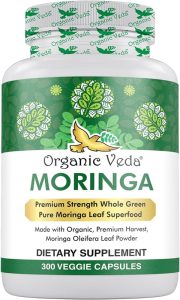



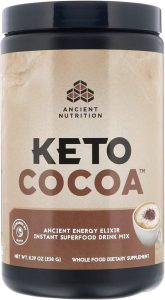

Be First to Comment